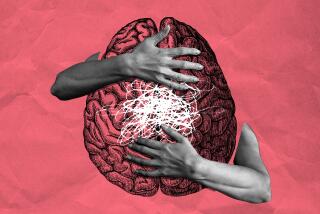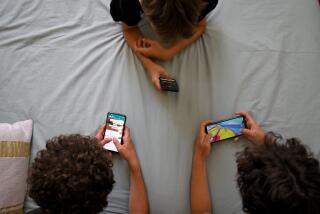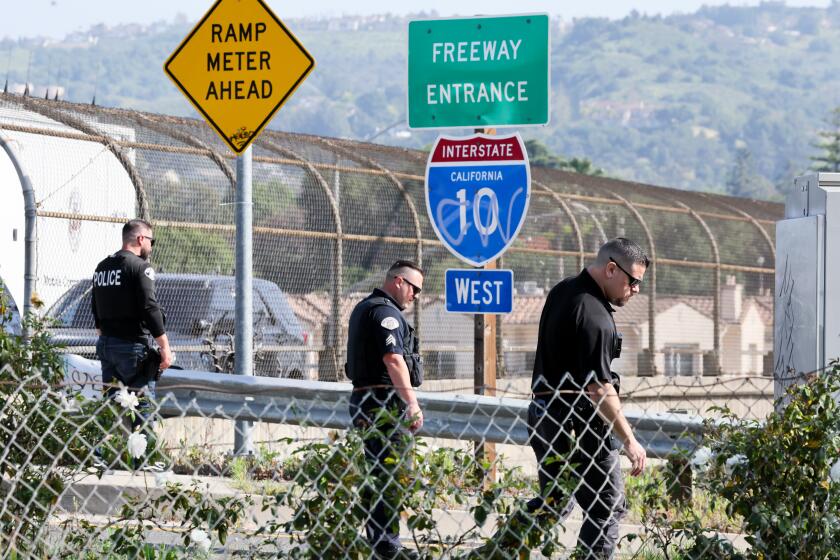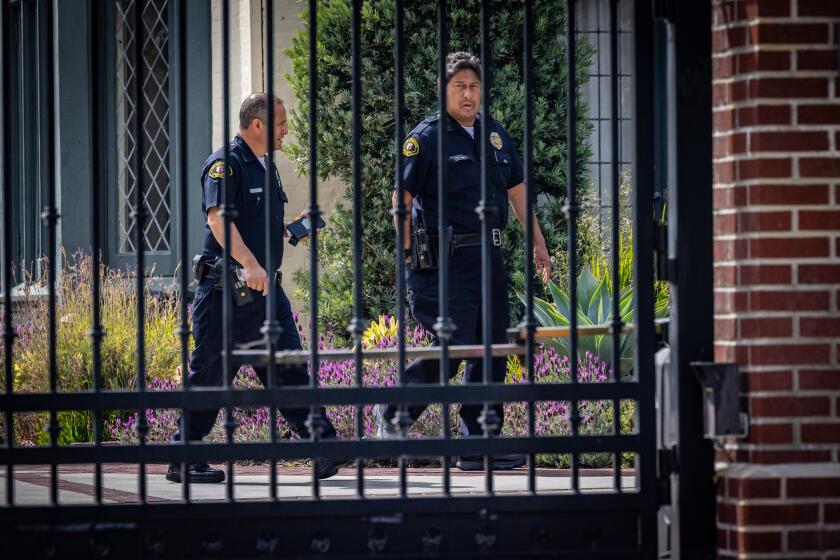A day of rest enters the Digital Age
Television writer-producer Jill Soloway turned off her electronic devices for 24 hours last Saturday and spent the morning playing with her 2-year-old son in her yard in Silver Lake.
“It was excruciating and kind of wonderful. I struggled with a feeling of anxiety that there was something in my inbox I needed to tend to,” she said. “Then came a moment when it felt like a holiday. Holiday means holy day. What a huge gift.”
Soloway, executive producer of the Showtime series “United States of Tara,” and a self-described smartphone junkie, was taking part in the “National Day of Unplugging,” organized by Reboot, a group of urban media professionals who try to reconnect with Jewish tradition in a way that is meaningful to their hectic lives.
The day of unplugging, now in its second year, grew out of the nonprofit group’s Sabbath Manifesto, a list of 10 once-a-week principles rooted in the Judeo-Christian day of rest, but applicable to people of any faith or no faith at all.
The manifesto, a new take on the Sabbath tradition, asks participants to “avoid technology, connect with loved ones, nurture your health, get outside, avoid commerce, light candles, drink wine, eat bread, find silence and give back.”
Soloway, who now hopes to unplug every week, says it is spiritually fulfilling to redefine one’s personal space in the Digital Age. “The inbox is always open in my brain and anyone can get in any time and access me,” she said. “Turning it off is taking back control. I decide who gets in. It’s about emotional privacy, having a self.”
Because participants were logged off computers, smartphones and other devices, Reboot representatives say they don’t know exactly how many took the 24-hour challenge. But a spokesman said the Sabbath Manifesto page on the group’s website received 260,000 hits in the weeks before the event.
And Reboot enlisted 125 organizations with a combined reach of 840,000 people, including Jewish community centers, volunteer groups and museums, to provide participants with alternative plans for the day. In many cases, those unplugging could tuck their cellphones into little canvas “sleeping bags” while they were visiting exhibits, feeding the homeless or holding worship services.
Participants can also download a Sabbath Manifesto smartphone application that alerts friends and colleagues that they are unreachable. Available headers include “Digital Detox” and “Low-Tech.”
Courtney Holt, outgoing president of MySpace Music and a Reboot board member, said he used the app to notify 1,000 people on his Facebook and Twitter lists that he was spending last Saturday offline. “People that I know definitely let me have this day,” said Holt, also of Silver Lake.
Altogether, Reboot counted 16,000 Tweets going out about the day of unplugging. “It’s not ironic. It sounds cheeky, but it’s precisely the point,” Holt said of using a smartphone application to wean people from their smartphones.
Holt took his children roller-skating and out for burgers over the weekend, then to a concert. He and his wife never totally shut off the phones in case of an emergency.
“I don’t feel a personal need to keep the Sabbath. I do feel a need to have a better connection with my family and disconnect with what I’m pressured with all week,” Holt said. “It’s to be a better person and father. That sounds Jewish to me, although an Orthodox person might disagree.”
Elizabeth Drescher, a Santa Clara University religion lecturer, says the Sabbath app is the latest in a series that various faith groups are using to reach people where they dwell — in a digital landscape.
“I don’t know of a religious group that doesn’t” use new media, Drescher said. “Some do it better than others. They get that it’s not just broadcast media on steroids. It’s not bigger, better TV where you get your message out. It must be social and interactive.”
There is a controversial confession app in which Catholics can unburden themselves and receive penance via cellphone without interacting with clergy. There is an Islam-based app that tracks the sun’s movement through the sky so Muslims will know when to pray. And “The Virtual Abbey” tweets prayers to recipients several times a day.
As Drescher also noted in a recent article in Religion Dispatches magazine, shutting down electronic devices might help to create a zone of spirituality for “young urban hipsters,” but for others, including some who live in rural areas, turning on the technology may enhance the spiritual experience.
“I know thousands of people who use technology to pray together,” Drescher said. “Connection is important to spirituality.”
Writer Christopher Noxon said today’s digital tools — or at times, refraining from using them — have made a major difference in his life.
“Television and computer screens had become our babysitters on weekends and that doesn’t happen anymore,” Noxon said. Once a week for the past year, his family has eliminated activities that require a screen, he said.
Last Saturday, Noxon and two of his children volunteered at a Santa Monica homeless center. “It’s really not enough to just unplug,” he said. “You need a priority, an intention.”
His family concludes each Saturday with its own havdalah, a service marking the Sabbath’s close, in which each person states what he or she wants to leave behind from the previous week and what to carry over to the new week.
“I don’t think of it as a spiritual practice but a human practice,” Noxon said. “It’s enough for me that it works as a betterment exercise. I leave God out of it. I don’t need to name what it is. I just know it works.”
More to Read
Start your day right
Sign up for Essential California for news, features and recommendations from the L.A. Times and beyond in your inbox six days a week.
You may occasionally receive promotional content from the Los Angeles Times.






